Interview Skills
Interview Skills
In today’s rapidly changing job market, interviews are the primary gateway to securing employment and educational opportunities. For students and job seekers, interviews offer a chance to demonstrate their skills, knowledge and potential to prospective employers or institutions. However, interviews can often feel terrifying due to the pressure of making a positive first impression. The key to overcoming these challenges is preparation and understanding the interview process.
Interviews are more than just question-and-answer sessions. They are an opportunity to showcase your ability to communicate effectively, think critically and align with the company or role you are applying for. Employers evaluate your qualifications, personality, attitude and how well you handle pressure. The interview process, though formal, can be seen as a conversation between the interviewer and the candidate.
Meaning/Definition of an Interview
An interview is a formal conversation where a candidate and an interviewer discuss various topics to assess the candidate’s suitability for a job, educational opportunity or other roles. Interviews are used as a tool by employers and institutions to evaluate the abilities, experiences and character of the candidate. They can take many forms, including one-on-one, panel, group, telephonic or video interviews, depending on the nature of the role and organization.
The main purpose of an interview is to evaluate the candidate’s potential contribution to the organization or institution. It is not just about verifying qualifications; interviews assess communication skills, problem-solving abilities, adaptability and how well a candidate fits into the company’s culture. Employers look for people who can thrive in their work environment and add value to the team.
On the other hand, interviews also allow candidates to learn more about the company or role, ask questions and assess if the job fits their career goals and values. A successful interview is one where the interviewer and the candidate find a connection that benefits both sides. Interviews require preparation, attention to detail and a positive attitude to make a strong impression.
Preparing for an Interview
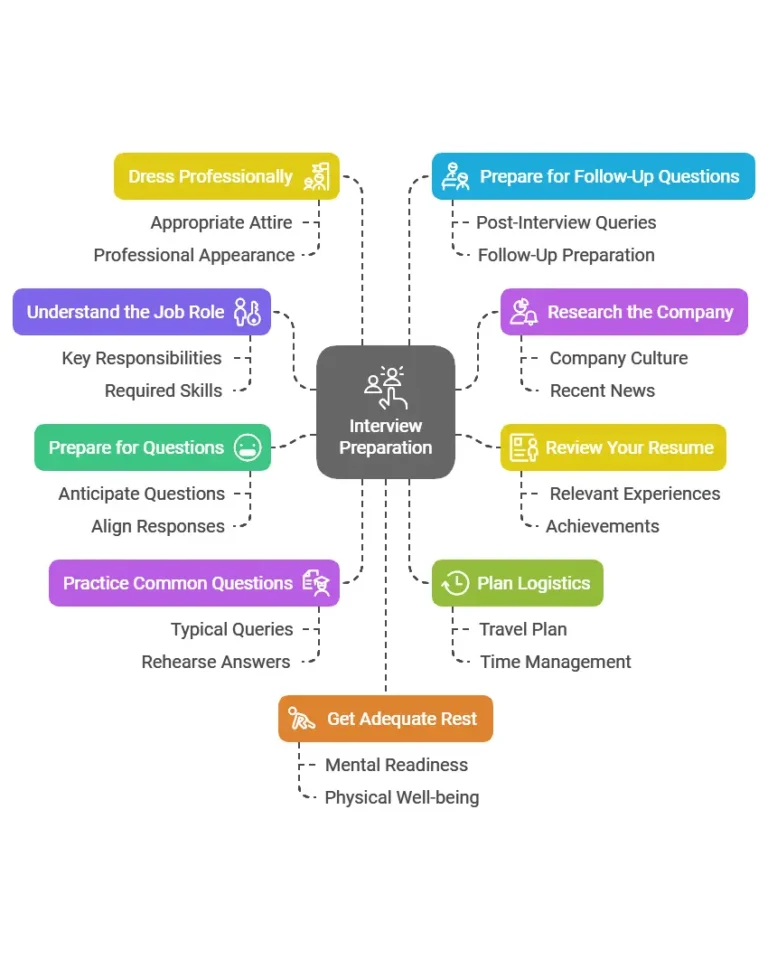
Preparation is the backbone of interview success. It helps you build confidence, reduce anxiety, and present yourself as a capable and organized candidate. Proper preparation means understanding the role you are applying for, researching the company, and being ready for a range of questions you might encounter. The more you prepare, the better equipped you are to handle the interview smoothly and effectively. You aim to present yourself in the best light, show your qualifications and prove that you are the right candidate for the role.
Here are crucial steps to prepare yourself thoroughly for an interview:
1. Understand the Job Role: Begin by thoroughly reading the job description. Ensure you clearly understand the responsibilities, qualifications and skills required for the role. Knowing the specifics of the position allows you to align your experiences and qualifications with the employer’s needs. For example, if the job emphasizes teamwork, prepare to discuss examples of how you have successfully worked in teams in the past. Tailoring your answers to the job role will demonstrate that you have taken the time to prepare and are genuinely interested in the position.
2. Research the Company: Knowing about the company is essential for a successful interview. Explore the company’s website, mission statement and recent news. Understand the company’s products or services, work culture and position in the industry. Researching the company helps you tailor your responses and shows the interviewer that you are truly interested in joining the organization. Moreover, this knowledge will help you align your goals with the company’s vision, making a stronger case for why you are the right fit for the team.
3. Review Your Resume and Past Experiences: Be familiar with every detail of your resume. The interviewer will likely ask questions based on your past experiences, education and skills mentioned in the resume. Reflect on your achievements and challenges in previous roles, and be ready to discuss how they relate to the job you are applying for. Knowing your own history inside out will allow you to confidently address any gaps or questions about your work or academic background.
4. Prepare for Probable Questions and Align Your Responses: One of the most critical aspects of interview preparation is anticipating the questions you might be asked. Based on the job description and company research, think about the questions that could arise. These might include questions about your strengths and weaknesses, how you handle pressure or specific skills relevant to the role. Please write down and practice your answers, but avoid memorizing them word-for-word. Align your responses to highlight how your experiences and skills fit the role.
5. Practice Common Interview Questions: Certain questions are commonly asked in most interviews, such as “Tell me about yourself,” “Why do you want to work here?” and “What are your career goals?” Practice answering these questions with a focus on clarity and brevity. Prepare to explain your qualifications concisely and effectively. Practicing with a friend or family member can help you improve your delivery and gain feedback on your responses.
6. Prepare for Behavioral and Situational Questions: Many interviews include behavioural questions that ask you to describe how you handled certain situations in the past. These are designed to assess how you react to challenges and work in a team. Structure your answers using the STAR method (Situation, Task, Action, Result). For example, if asked about a time when you worked under pressure, describe the situation, what task you had to complete, the actions you took, and the results you achieved.
7. Plan Your Travel and Time: Punctuality is key to a successful interview. Plan your route, whether you are traveling by car or public transport. Account for potential delays and aim to arrive at least 15-20 minutes early. This extra time allows you to calm your nerves and prepare mentally. Being late not only creates a bad impression but can also add unnecessary stress before the interview.
8. Dress Professionally: Your appearance is the first impression the interviewer will have of you, so dress appropriately for the company’s culture. For most professional settings, business attire is expected, but some industries may have more relaxed dress codes. Regardless, your clothing should be neat, clean and professional. Avoid wearing anything too casual or flashy that could distract from your qualifications.
9. Prepare for Probable Follow-Up Questions: In addition to answering the main interview questions, be prepared for follow-up questions that probe deeper into your responses. Interviewers may ask you to elaborate on your point or provide more details about an experience. Practice how you can expand your any unexpected questions confidently.
10. Get Adequate Rest: Before the interview, ensure you are well-rested. A good night’s sleep helps you stay focused and calm during the interview. Avoid last-minute preparations that could lead to anxiety. Instead, relax and mentally prepare yourself by visualizing a successful interview experience.
How to Face Interviews
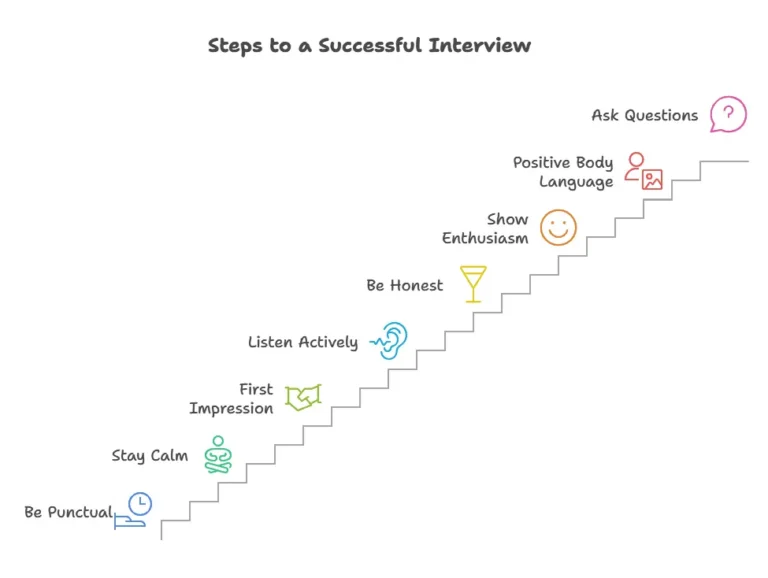
How to Face Interviews
Facing an interview can be one of the most challenging yet rewarding experiences in a job-seeker’s journey. It is about responding to questions and making a robust and lasting impression. Presenting yourself, communicating and engaging with the interviewer can significantly influence the outcome. Interviews can often feel intimidating, but with the right mindset and approach, they become an opportunity to demonstrate your value. By remaining calm, confident and well-prepared, you can make a positive impression that sets you apart from other candidates.
The following strategies will help you face interviews with poise and confidence:
1. Be Punctual: Punctuality is a reflection of your professionalism. Arriving late to an interview can create a negative impression and reduce your chances of success. Plan your travel ahead of time, accounting for any potential delays. Arriving early demonstrates your respect for the interviewer’s time and gives you a chance to compose yourself before the interview begins.
2. Stay Calm and Confident: Interviews can be stressful, but remaining calm and composed is essential. Take a few deep breaths before entering the room and remind yourself that you are well-prepared. Confidence is key during an interview, but avoid confusing confidence with arrogance. Stay calm and respond honestly if you encounter a question you don’t know the answer to. Your ability to handle pressure gracefully will leave a positive impression.
3. Make a Strong First Impression: First impressions are critical in interviews. Greet the interviewer with a firm handshake, maintain eye contact and smile. These simple actions convey confidence and professionalism. From your posture to your tone of voice, every element contributes to the overall impression you make. Remember how you carry yourself during the first few moments can set the tone for the rest of the interview.
4. Listen Actively to Questions: Active listening is a crucial skill during interviews. Pay attention to what the interviewer is asking and take a moment to formulate your response before speaking. If a question is unclear, don’t hesitate to ask for clarification. Active listening shows you are engaged in the conversation and serious about providing thoughtful answers.
5. Be Honest and Authentic: Authenticity is highly valued in interviews. Be honest about your qualifications and experiences. If you don’t know the answer to a question, it’s better to admit it than to provide an incorrect or misleading answer. Being genuine helps build trust and shows that you are confident in your abilities without feeling the need to exaggerate.
6. Show Enthusiasm and Interest: Employers are looking for candidates who are genuinely excited about the role and the company. Demonstrating enthusiasm for the position shows that you are motivated and eager to contribute. However, be mindful not to overdo it, as excessive enthusiasm can be insincere. By connecting it to your skills and career goals, please express your interest in the role naturally.
7. Use Positive Body Language: Your body language speaks volumes during an interview. Maintain good posture, make eye contact, and avoid fidgeting. Positive body language reflects confidence and attentiveness while slouching or avoiding eye contact can indicate nervousness or disinterest. Your non-verbal cues should complement your verbal responses, creating a cohesive and professional impression.
8. Give Specific Examples: When discussing your experiences, provide specific examples to illustrate your points. Rather than offering vague answers, use real-life scenarios that demonstrate your skills and how you have applied them in the past. For example, if asked about your leadership skills, describe a situation where you successfully led a project, the challenges you faced, and the results you achieved.
9. Ask Insightful Questions: Toward the end of the interview, you will often be asked if you have any questions. This is an opportunity to engage with the interviewer and demonstrate your interest in the company. Ask thoughtful questions about the role, the team or the company’s long-term goals. Avoid asking questions that could quickly be answered by looking at the company’s website, as this may suggest a lack of preparation.
Dos and Don'ts in Interview
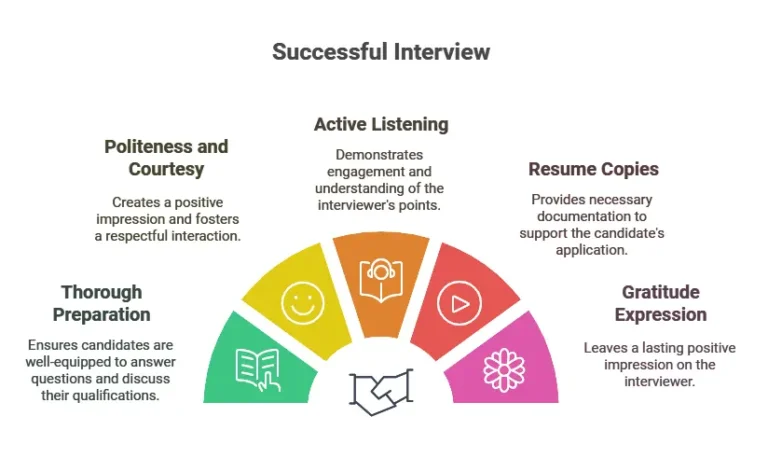
When it comes to interviews, certain behaviors and attitudes can significantly influence your chances of success. Understanding the dos and don’ts of interviews is crucial in helping you track the process professionally. The dos are positive actions that reflect your preparedness, professionalism and respect for the interviewer. On the contrary, don’ts are common mistakes that candidates make, damaging their credibility and delaying their chances of securing the job.
By adhering to these guidelines, you will make a strong impression and increase your chances of being considered for the role.
Dos in an Interview
1. Do Prepare Thoroughly: Preparation is the key to interview success. Research the company, review the job description and practice answering questions. Being well-prepared boosts your confidence and allows you to respond to questions thoughtfully. It also shows the interviewer that you take the opportunity seriously.
2. Do Be Polite and Courteous: From the moment you walk into the interview location, be polite and courteous to everyone you meet. Simple gestures like saying “please” and “thank you” leave a lasting positive impression. Courtesy reflects your professionalism and respect for others, which are highly valued in any workplace.
3. Do Listen Carefully: Active listening is an essential skill during interviews. Pay close attention to the questions and take time to respond thoughtfully. If you don’t understand a question, ask for clarification rather than giving an unrelated answer. Listening carefully shows that you are attentive and engaged in the conversation.
4. Do Bring Extra Copies of Your Resume: Always carry extra copies of your resume, even if the interviewer already has one. This shows that you are prepared and organized. Having extra copies also allows you to refer to specific details during the interview, making it easier to discuss your qualifications.
5. Do Express Gratitude: At the end of the interview, thank the interviewer for their time and consideration. A simple “thank you” demonstrates your appreciation and leaves a positive final impression. It’s also a good practice to send a follow-up email expressing your gratitude after the interview.
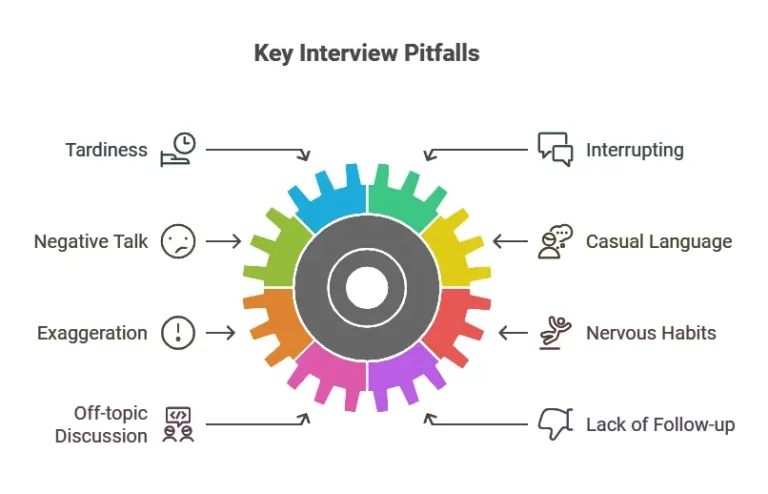
Don’ts in an Interview
- Don’t Be Late: Punctuality is a sign of professionalism. Arriving late to an interview shows a lack of respect for the interviewer’s time and could ruin your chances of making a good impression. Always aim to arrive at least 15-20 minutes early to account for any unexpected delays.
- Don’t Interrupt the Interviewer: Interrupting the interviewer can be perceived as rude or impatient. Always let the interviewer finish their question before responding. Interruptions disrupt the flow of the conversation and can leave a negative impression.
- Don’t Speak Negatively About Previous Employers: Speaking negatively about past employers or colleagues reflects poorly on you. Even with negative experiences, focus on the lessons you learned rather than criticizing others. Employers value professionalism and will be wary of candidates who badmouth previous employers.
- Don’t Use Casual Language: Maintain a professional tone throughout the interview. Avoid using slang or overly casual language, as this can be unprofessional. Use clear and concise language that conveys your qualifications and enthusiasm for the role.
- Don’t Exaggerate Your Abilities: Be honest about your skills and experiences. While it’s important to highlight your strengths, avoid exaggerating or lying about your abilities. It could damage your credibility if the interviewer asks you to elaborate on something you can’t back up.
- Don’t Fidget or Display Nervous Habits: Nervous habits like fidgeting, tapping your feet, or playing with your hands can distract and signal discomfort. Try to maintain calm body language by sitting up straight, making eye contact and keeping your hands still.
- Don’t Ramble or Go Off-topic: Keep your answers focused and relevant to the question. Avoid rambling or going off on tangents, as this can make you appear disorganized. Practice concise responses that directly address the interviewer’s questions.
- Don’t Forget to Follow Up: After the interview, sending a follow-up email thanking the interviewer for their time is a good idea. This small gesture can set you apart from other candidates and show that you are genuinely interested in the position.
By following these dos and don’ts, you will face the interview process professionally and confidently, significantly improving your chances of securing the job.
Sample Interview for the Post of Receptionist
Candidate: “May I come in?”
Interviewer: “Yes, please come in.”
Candidate: “Good morning, Sir/Madam.”
Interviewer: “Good morning, Mr. Verma. Please take a seat.”
Candidate: “Thank you.”
Interviewer: “Let’s begin. Could you briefly introduce yourself?”
Candidate: “My name is Mr. Verma, and I have two years of experience working as a receptionist at ABC Company. I am experienced in handling front desk operations, managing phone calls, and assisting visitors. I am organised and enjoy interacting with people.”
Interviewer: “Thank you. What made you interested in applying for this role?”
Candidate: “I’ve always admired your company’s reputation for its customer service. I’m confident that my skills in communication and organisation would be a good match, and I am eager to contribute to the team here.”
Interviewer: “As a receptionist, you will often face multiple tasks at once. How do you manage stressful situations, such as handling a busy office or dealing with difficult visitors?”
Candidate: “I stay calm and prioritise tasks. I ensure every visitor feels welcome, even during busy times, and manage phone calls efficiently. If I encounter a difficult visitor, I listen carefully to their concerns and resolve the issue politely. If necessary, I will escalate the matter to a senior colleague.”
Interviewer: “That’s a good strategy. Could you explain how you stay organised, especially when juggling calls, visitors, and appointments?”
Candidate: “I rely on keeping a detailed schedule and using reminders or calendars to manage my time. I prioritise tasks based on urgency, ensuring visitors are attended to promptly while managing calls and appointments properly. I also keep detailed notes to track tasks and follow-ups.”
Interviewer: “Good to hear. What do you think are the most important qualities for a receptionist to have?”
Candidate: “A receptionist should be friendly, organised and remain calm under pressure. Good communication skills are essential, as well as the ability to multitask and deal with unexpected situations in a professional manner.”
Interviewer: “Our office is fast-paced with a high volume of visitors. How do you think you would handle that?”
Candidate: “I enjoy working in a busy environment. I managed a fast-moving front desk at ABC Company with multiple visitors and calls. I developed strong time management skills, which helped me balance tasks efficiently while maintaining a welcoming atmosphere for everyone.”
Interviewer: “What do you expect from this role and the company?”
Candidate: “I hope to contribute positively to the front desk operations while also continuing to develop my skills. I’m looking for a positive work environment to learn, grow, and be part of a team that values excellent service.”
Interviewer: “Do you have any questions for us?”
Candidate: “Yes, could you tell me more about the team I would be working with and the key goals for this role?”
Interviewer: “You will be part of a small administrative team, and the key goals are to ensure smooth daily operations and provide exceptional service to our clients and visitors.”
Candidate: “Thank you for the information. That sounds like a great opportunity.”
Interviewer: “Thank you for your time, Mr. Verma. We’ll get back to you shortly.”
Candidate: “Thank you, Sir/Madam. I look forward to hearing from you.”
Multiple Choice Questions
1. What is the primary purpose of an interview?
a) To assess the candidate’s appearance
b) To test the candidate’s general knowledge
c) To evaluate the candidate’s suitability for the job
d) To check the candidate’s punctuality
2. What is a crucial step in preparing for an interview?
a) Memorizing answers
b) Researching the company
c) Dressing casually
d) Reaching just in time
3. What is the STAR method used for?
a) Structuring behavioral responses
b) Organizing your resume
c) Planning your travel
d) Dressing professionally
4. Which is a common interview mistake?
a) Asking insightful questions
b) Giving specific examples
c) Speaking negatively about past employers
d) Listening actively
5. Why should you review your resume before an interview?
a) To remember dates
b) To be familiar with your experiences
c) To change the layout
d) To shorten it
6. What is a key benefit of arriving early for an interview?
a) Impressing the receptionist
b) Reviewing last-minute notes
c) Giving yourself time to relax
d) Finding a better parking spot
7. What should you avoid during an interview?
a) Maintaining eye contact
b) Asking for clarification
c) Fidgeting or displaying nervous habits
d) Giving examples of your skills
8. What is the best approach if you don't understand a question?
a) Ignore it
b) Ask for clarification
c) Give a random answer
d) Change the subject
9. Why should you practice answering common interview questions?
a) To memorize responses
b) To speak faster
c) To improve confidence
d) To impress the interviewer
10. What should you do after completing an interview?
a) Leave without saying anything
b) Send a thank-you note or email
c) Ask for immediate feedback
d) Wait for them to contact you
11. What is the most important aspect of body language during an interview?
a) Crossing your arms
b) Making consistent eye contact
c) Fidgeting
d) Avoiding eye contact
12. What should you focus on when answering a behavioral question?
a) General information
b) Personal opinions
c) Specific examples from past experiences
d) Random stories
13. What should you do if asked about a skill you don't have?
a) Lie to impress
b) Admit it honestly
c) Avoid the question
d) Change the topic
14. What is the first thing you should do when entering the interview room?
a) Sit down immediately
b) Greet the interviewer with a smile and handshake
c) Start talking about yourself
d) Begin asking questions
15. How should you address negative experiences with past employers?
a) Focus on the negatives
b) Avoid mentioning them
c) Highlight what you learned from the experience
d) Criticize the company
Long Answer Type Questions
1. Explain the key steps in preparing for an interview.
2. How does body language impact the outcome of an interview?
3. Discuss the importance of researching a company before attending an interview.
4. Why is it important to practice answers to common interview questions?
5. What are the dos and don'ts during an interview? Provide examples for both.
6. Explain how the STAR method can effectively answer behavioral interview questions.
7. Write a sample interview for the post of Sales Manager, including an introduction, questions about the candidate’s experience and specific skills required for the role.
Prepared by Prof. D.C. Nanaware
Edited by Prof. Dr. V.H. Waghmare
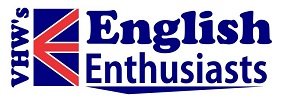
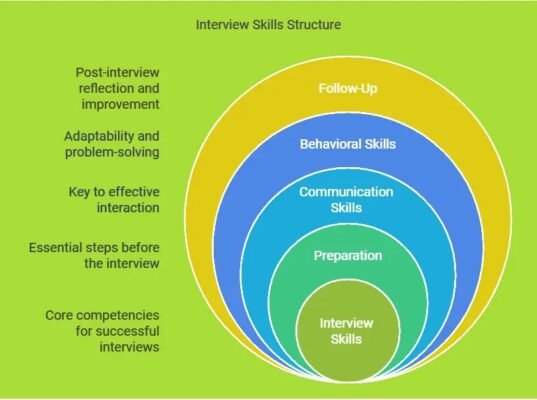
Hey there! Do yyou know if they make any plugins to assist
with SEO? I’m trying to get my blog to rank for some targgeted keywords
but I’m nott seeing very good results. If you know oof any please share.
Appreciate it! http://boyarka-inform.com/